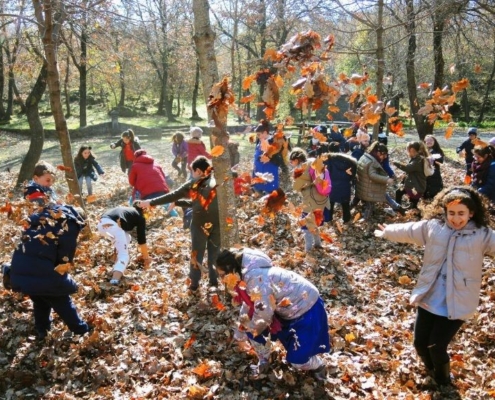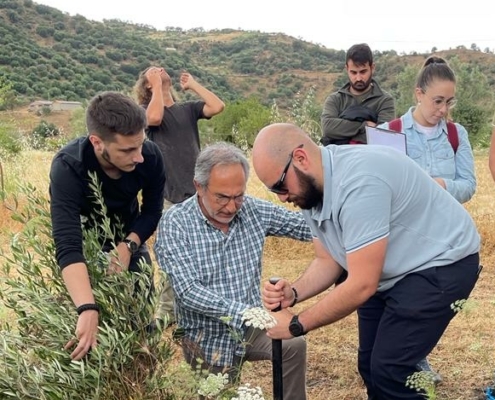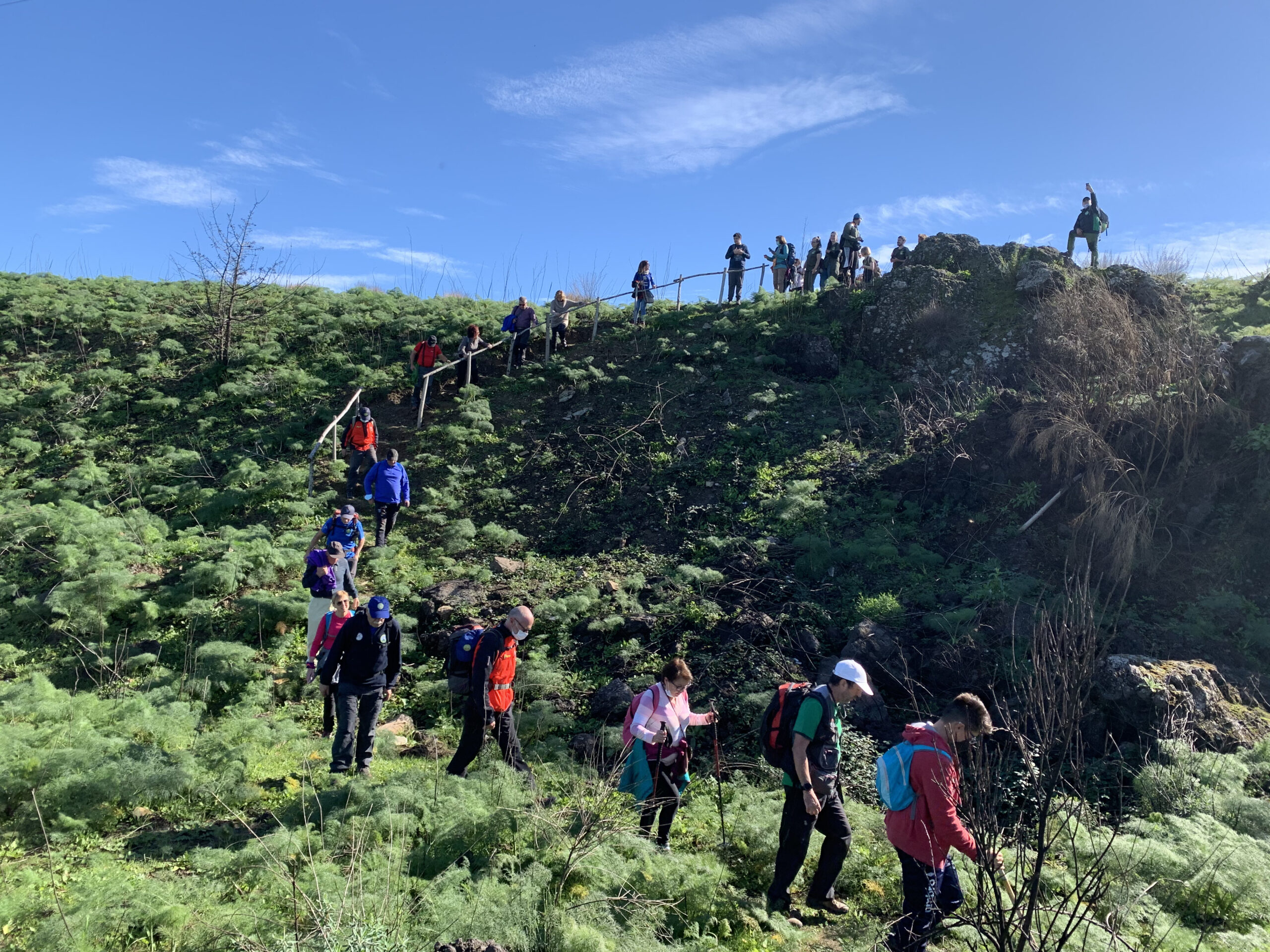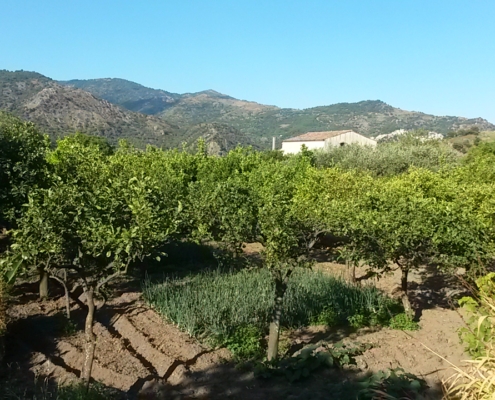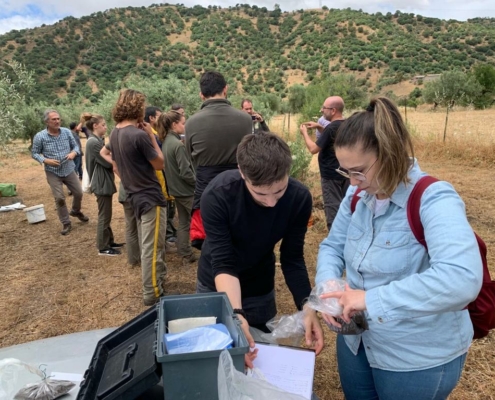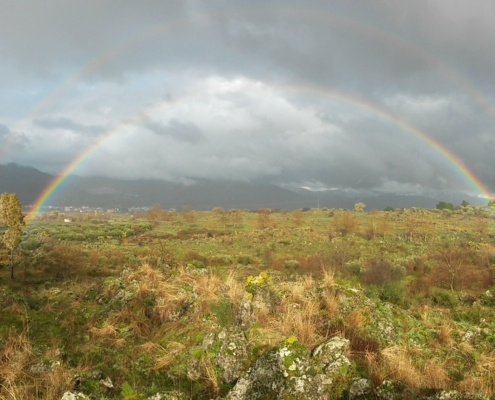Climate Action at Mount Etna – Years of Work bear Fruit
by Sofia Shabafrouz, GIZ / EUKI
Planting trees, growing vegetables, composting waste – climate action and nature conservation can be very practical and fun. This is something the Manfred-Hermsen-Stiftung and local conservation organisation Giacche Verdi Bronte have been teaching for several years now through three projects funded by the European Climate Initiative (EUKI).
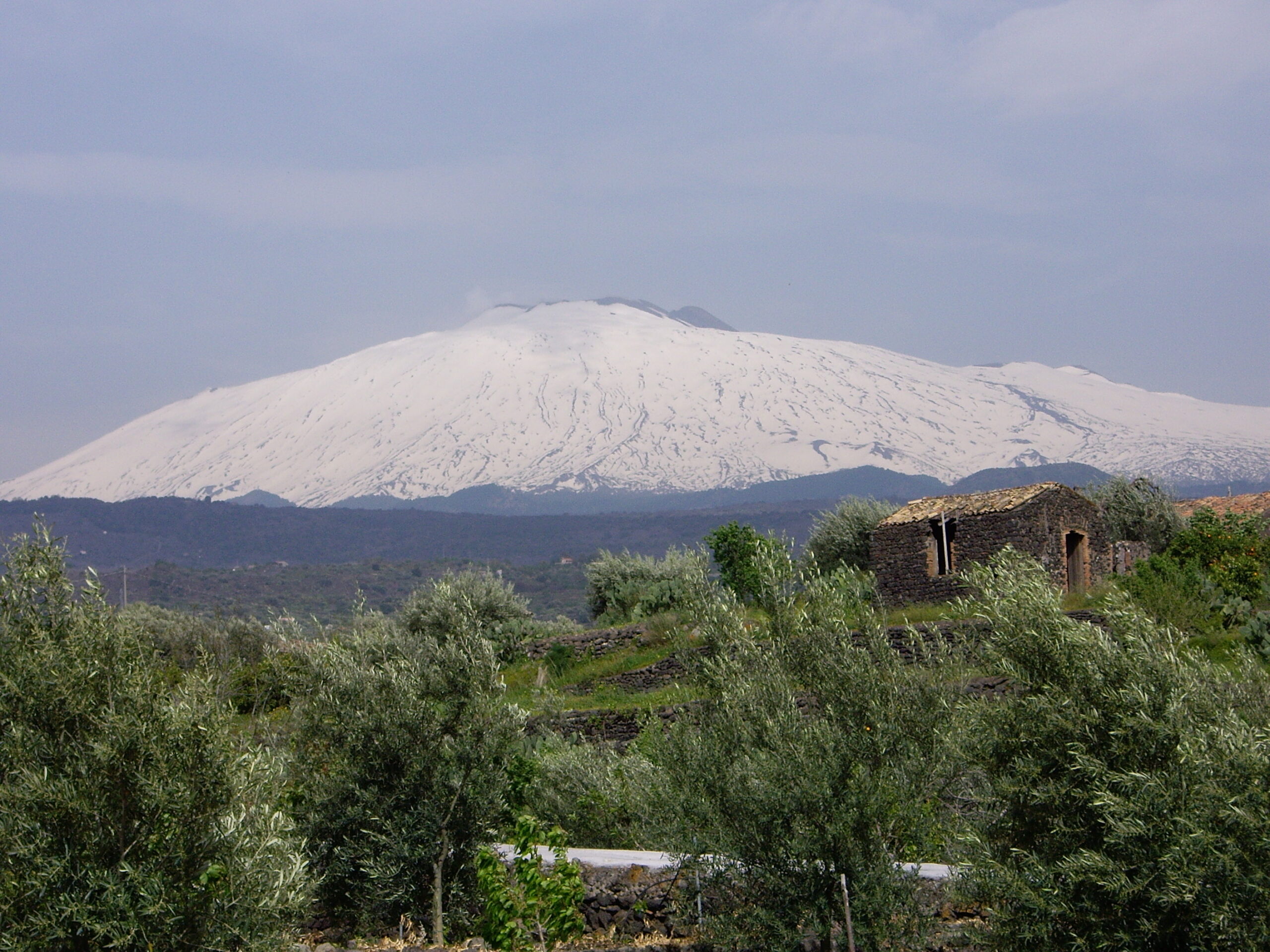
The two partners have been working in the northern Etna region since 2005 to promote biodiversity conservation above and below ground. The goal is to preserve the ecological corridor between Etna Park and Nebrodi Park for wildcats and create a greenhouse gas sink by ensuring that soils are healthy. To this end, the partners involve and support smallholding families, who shape the landscape. The region is preparing for nomination to become a UNESCO Biosphere Reserve. This is the framework in which three EUKI-financed projects, one on climate action and environmental education, one on biodiversity and one on organic farming, are embedded. Through these initiatives, the Manfred-Hermsen-Stiftung and Giacche Verdi Bronte are reaching schoolchildren and young people, local communities and farmers, and international volunteers.
Forests, fruits, humus– three instructive projects
The first EUKI-funded project, Boschi per la Biosfera – Forests for the Biosphere, launched in 2017. 2,200 schoolchildren in the Mount Etna region completed a climate and forest education course in which they were encouraged to establish oak and Mount Etna broom saplings. Planting almost 2,500 oak trees allowed the students to make their own contribution to developing healthy forests and to learn about the positive role they play in regard to the climate. These oaks will capture 600,000 kg of carbon over the next 40 years. The second project, Frutti per la Biosfera – Fruits for the Biosphere, started one year later and supported local producers with selling their agricultural produce. Schoolchildren explored the topic of climate-friendly nutrition. They learned that, unlike imported products, vegetarian foods protect the climate when they are grown regionally and organically according to the season. Nine vegetable gardens were set up in schools. The two projects were a huge hit with the schools, which decided to continue them at their own expense for the next two years. Finally, Humus per la Biosfera – Humus for the Biosphere was awarded EUKI funding in 2021. Still ongoing, this project seeks to stimulate soil fauna to produce humus, which guarantees fertility and binds carbon, thus helping to capture greenhouse gases in the long term. To this end and accompanied by scientific research, the project staff conduct experiments with donkey dung, charred tree cuttings, earthworm compost, mowing, mulching and specific growing techniques, and share their findings with the farmers and agricultural colleges. The project team also encourages private households and communities to compost their own organic waste. Through lessons in schools, nature trails (presented on information boards from the perspective of a toad or a bee) and playground and outdoor activities, the topics are communicated to the region’s children in a fun way.
Involving the younger generation
A common feature of all three projects is that they involve international volunteers as well as the local population. School leavers and students, mostly from Germany and elsewhere in Europe, but also from other countries, commit to undertaking practical conservation and climate-change-mitigation activities in Sicily over a period of several months.
To date, 71 young people aged between 18 and 30 have left behind their familiar surroundings to undertake conservation and environmental-education work in one of the three projects, gaining hands-on experience of planting trees or building compost bins and nesting boxes, for instance. Another 15 are currently involved in the humus project, exploring a sustainable lifestyle (through shopping at the local market, for example) in addition to learning Italian. Having been trained and equipped accordingly, they are helping to deliver environmental workshops and tours to thousands of children in Bronte and the surrounding area or assisting with studies of environmental practices. Following numerous work assignments and excursions, they will be returning home with many new insights and a fresh understanding of the environment and the climate, allowing them to carry out conservation and mitigation work and continue serving as multipliers in other places.
Creating a better future
By the time the current project ends, the Manfred-Hermsen-Stiftung and Giacche Verdi Bronte will have reached a total of over 9,000 schoolchildren in 27 municipalities through the three EUKI projects. Thanks to their lobbying efforts, the two partners have also established a strong network of 110 farmers from the 120,000-hectare project region. These farmers will be involved in the current humus project. The farmers also represent their common interests in the face of the EU’s Common Agricultural Policy (CAP) and put forward the long-term vision for a sustainable and biodiverse agricultural sector.

